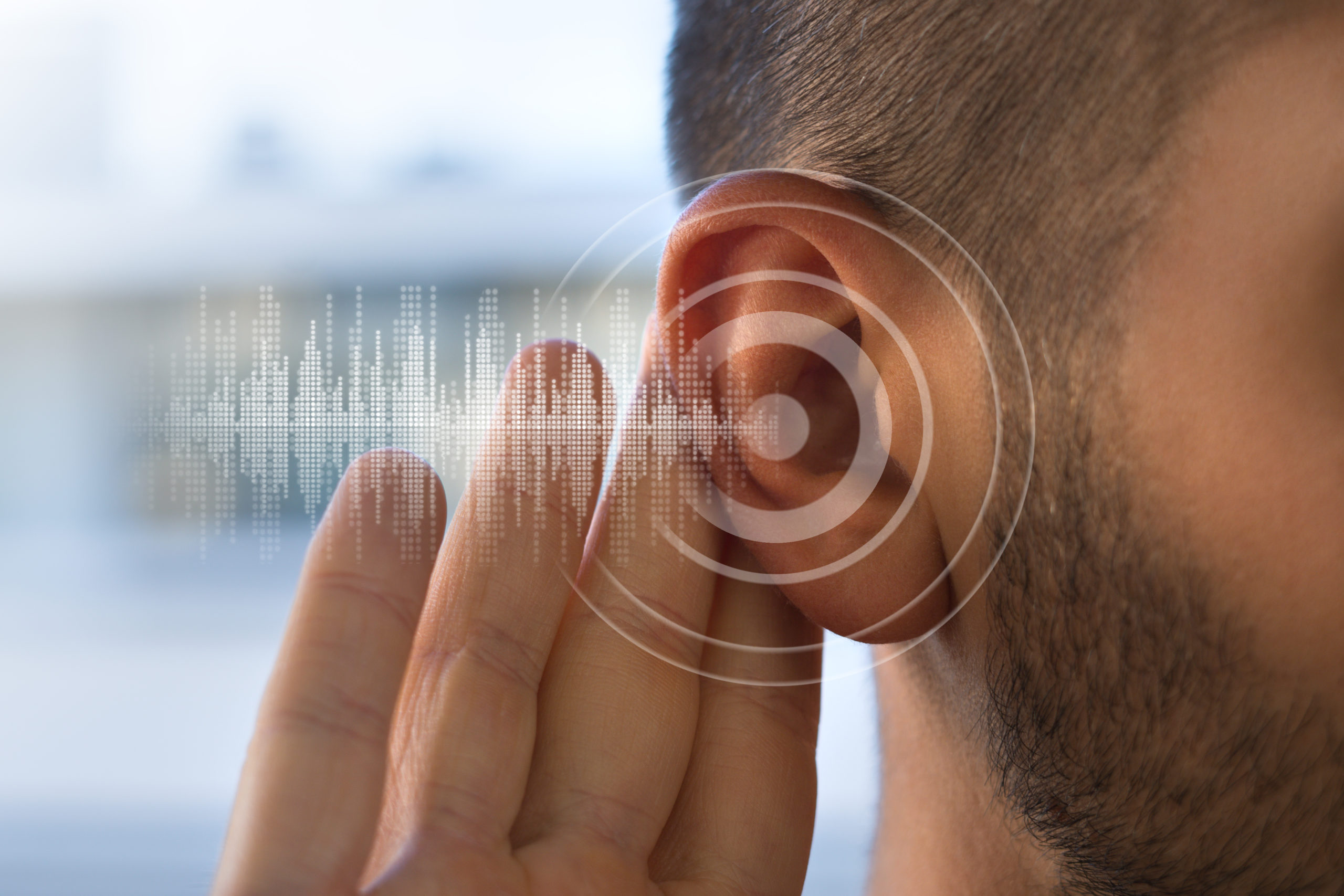Understanding the Different Types of Hearing Loss
Are you concerned that you or one of your loved ones may have hearing loss? Hearing problems can affect people of any age and can be caused by a number of factors, such as illness or genetics. However, the most common sources of hearing loss are due to the normal ageing process or continued exposure to loud noise.
The symptoms of hearing loss can vary depending on the type and severity. For example, if you have mild hearing loss in both ears, your experience with sound will be different than someone with profound hearing loss in one ear only. In general, people with hearing loss may find themselves in the following scenarios:
- Friends or family telling you that your television or radio is too loud
- Struggling to understand speech, especially in noisy environments
- Having difficulty hearing the other person on the phone
- Feeling unsure where sounds are coming from
- Often asking people to repeat themselves
There are two main types of hearing loss: sensorineural and conductive (1). Some people may also experience sudden hearing loss and noise-induced hearing loss. Here, we will dive into their causes, signs, and possible treatments.
Sensorineural Hearing Loss
Sensorineural hearing loss is the most common type of hearing loss. It occurs when the sensory cells or nerves in the inner ear are damaged, disrupting the transmission of sound from your ear to your brain. This damage can be a result of ageing, exposure to loud noise, injury, or an inherited condition (2).
In general, sensorineural hearing loss is a gradual condition and it affects how loudly and how clearly you can perceive sound. Many experience a reduced ability to hear higher frequency sounds, such as:
- Women and children’s voices
- Consonant sounds like s, sh, f, th, f, p, making it difficult to understand speech
- Beeping sounds from timers and microwaves
- Birds chirping
Some people may also experience recruitment, which is when some louder sounds feel more uncomfortable than usual to listen to.
Unfortunately, sensorineural hearing loss is not medically or surgically treatable, but many find hearing aids helpful in restoring their ability to hear.
Conductive Hearing Loss
Conductive hearing loss is when sound waves are not carried all the way through from the outer or middle ear to the inner ear. This blockage may be caused by a buildup of earwax or a foreign object in the ear canal. Other causes of this type of hearing loss include:
- The middle ear space being filled with fluid
- An infection
- A bone abnormality or damage in the middle ear
- An injured eardrum
Only 10% of people with hearing loss experience conductive hearing loss and it is also the most common in children who have recurrent ear infections or who may have inserted foreign objects into their ears (3).
The symptoms of conductive hearing loss are similar to general hearing loss signs, but they occur at a faster rate. In addition, any sudden pain, pressure, or strange smell in your ears may also indicate a condition that causes conductive hearing loss.
This type of hearing loss tends to develop much faster than sensorineural hearing loss and in some people, the condition may be reversed by medication or surgery.
Sudden Hearing Loss
In some rare cases, people can develop hearing loss suddenly and it can be conductive or sensorineural. This usually happens in one ear and the symptoms are pretty obvious- you suddenly cannot hear out of one ear.
Sudden hearing loss can happen if you have a bad cold or an ear infection, however, it can be hard to distinguish between temporary congestion and actual ear damage from the infection. In some cases, people may hear a loud pop before losing their hearing or their ear may feel “full”. In any case, make sure to seek advice from your doctor as soon as possible if you are experiencing sudden hearing loss (3).
Noise-Induced Hearing Loss
Every day, we are surrounded by different sounds in our environment, most of which are at safe levels for our ears. However, exposure to loud noises, even if it’s only for a short amount of time, can be harmful to the sensitive structures in our ears and cause noise-induced hearing loss.
Noise-induced hearing loss can occur immediately or affect your hearing abilities over time and can affect one or both ears. Almost everyone is at risk of noise-induced hearing loss, but it is more prevalent in those who work in high-noise environments, such as mining, construction, manufacturing, and transportation. Occupational hearing damage is a common yet preventable injury. Those who are frequently exposed to loud noises at work should make sure that they are wearing appropriate ear protection at all times as the damage may not be reversible (4).
Noise-induced hearing loss can also be caused by listening to music at a high volume every day. This continuous exposure can be just as damaging to your ears as single noise exposure.
Some symptoms of noise-induced hearing loss include:
- Noticeable change in hearing after loud noise exposure
- Ear pain after hearing loud noise
- Tinnitus or a ringing or buzzing sound in the ear
Noise-induced hearing loss is the only type of hearing loss that can be completely prevented by practicing good hearing protection habits such as:
- Wearing earplugs or other protective devices when participating in a loud activity, such as concerts
- Moving away from the source of loud noise
- Protecting children’s ears when they’re too young to do so on their own
- Getting your hearing tested if you think you may be experiencing hearing loss
At Hearing Solutions, we are dedicated to providing first-class services for our valued patients. Our team of registered Audiologists and Hearing Instrument Specialists are experienced and equipped to provide a full range of hearing healthcare services, including hearing tests and comprehensive hearing aid fittings. Make an online appointment here or give us a call at 1-888-811-9799 to take care of your hearing health today.
Bibliography
1. Johns Hopkins Medicine. (2022, March 2). Types of Hearing Loss. Retrieved August 24, 2022, from https://www.hopkinsmedicine.org/health/conditions-and-diseases/hearing-loss/types-of-hearing-loss#:~:text=The%20three%20basic%20categories%20of,loss%20and%20mixed%20hearing%20loss.
2.Starkey. (n.d.). Types and Causes of Hearing Loss. Retrieved August 24, 2022, from https://www.starkey.com/hearing-loss/types-and-causes
3.Healthy Hearing. (2022, June 21). Hearing loss symptoms. Retrieved August 24, 2022, from https://www.healthyhearing.com/help/hearing-loss/symptoms#high-frequency-hearing-loss-symptoms
4. Hearing Solutions. (2021, September 28). What You Need to Know About Noise-Induced Hearing Loss. Retrieved August 24, 2022, from https://www.hearingsolutions.ca/what-you-need-to-know-about-noise-induced-hearing-loss/







